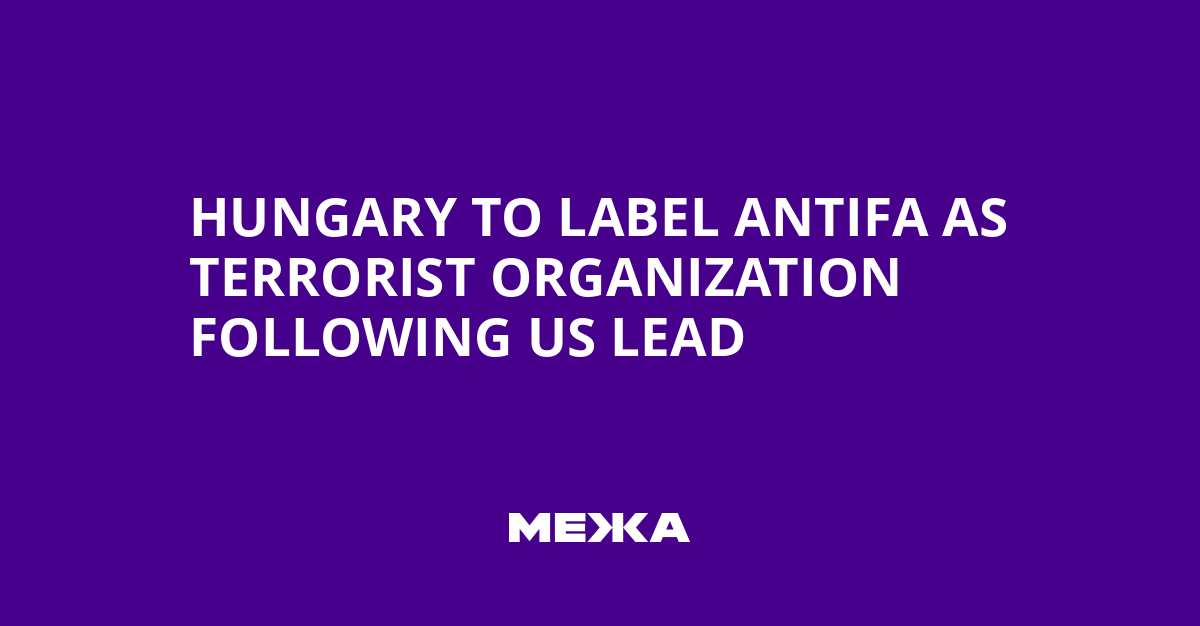Hungary’s Prime Minister Viktor Orbán on Friday said that the country would follow the example of U.S. President Donald Trump and officially designate Antifa – a nebulous left-wing anti-fascist movement – as a terrorist organization.
Orbán, who has been in power for more than 15 years undermining the role of civil institutions, said he was “practically satisfied” with Trump’s decision to label Antifa as a “great terrorist organization” in the United States and pledged to do the same.
“Antifa is a terrorist organization,” Orbán said on state radio. “The time has also come in Hungary for organizations like Antifa to be classified as terrorist organizations, following the American example.”
– Orbán
Context of the Antifa movement and responses in Europe and the United States
In the United States, Antifa is a diffuse movement without a clearly defined leader and a centralized structure. It is not clear what consequences the designation will have for the movement domestically, where the First Amendment protects freedom of speech, unlike the State Department’s list of foreign terrorist organizations.
Hungary also does not have a clearly centralized Antifa movement. In his remarks, Orbán mentioned the 2023 incident when Ilaria Salis – an Italian antifascist – was arrested on suspicion of attacking participants in the annual right-wing event “Day of Honor” in Budapest.
“They came to Hungary, beat peaceful people in the streets, beating some almost to death.”
– Orbán
Salis was released in May 2024 ahead of the start of her term in the European Parliament, which granted her legal immunity.
Orbán also suggested that Antifa could “become Members of the European Parliament” and later “teach Hungary the rule of law,” which drew sharp reactions from European lawmakers who described Day of Honor as “a disgrace, featuring Nazi flags, slogans, and uniforms.”
Context regarding Soros and the internal political dynamics
Although Antifa is not an active force in Hungary, Orbán continues to use the image of the “scapegoat” to justify policy and strengthen his grip on power, while accusing the wealthy philanthropist George Soros and his Open Society Foundations of influencing the country.
In the United States, conservative critics call to apply the RICO Act against left-wing groups they view as part of efforts to incite violence. Recent events are intensifying the debate over accountability for violent actions in the political arena.
Current events underscore the tension between security and civil liberties, as well as the growing role of the rule of law in a European context. Despite different theses, attention to legal norms and the real impact of decisions remains key to regional stability and European politics as a whole.
